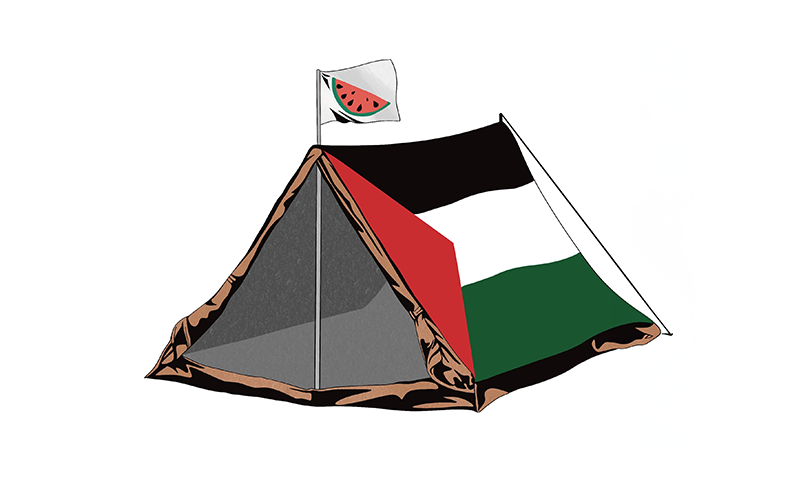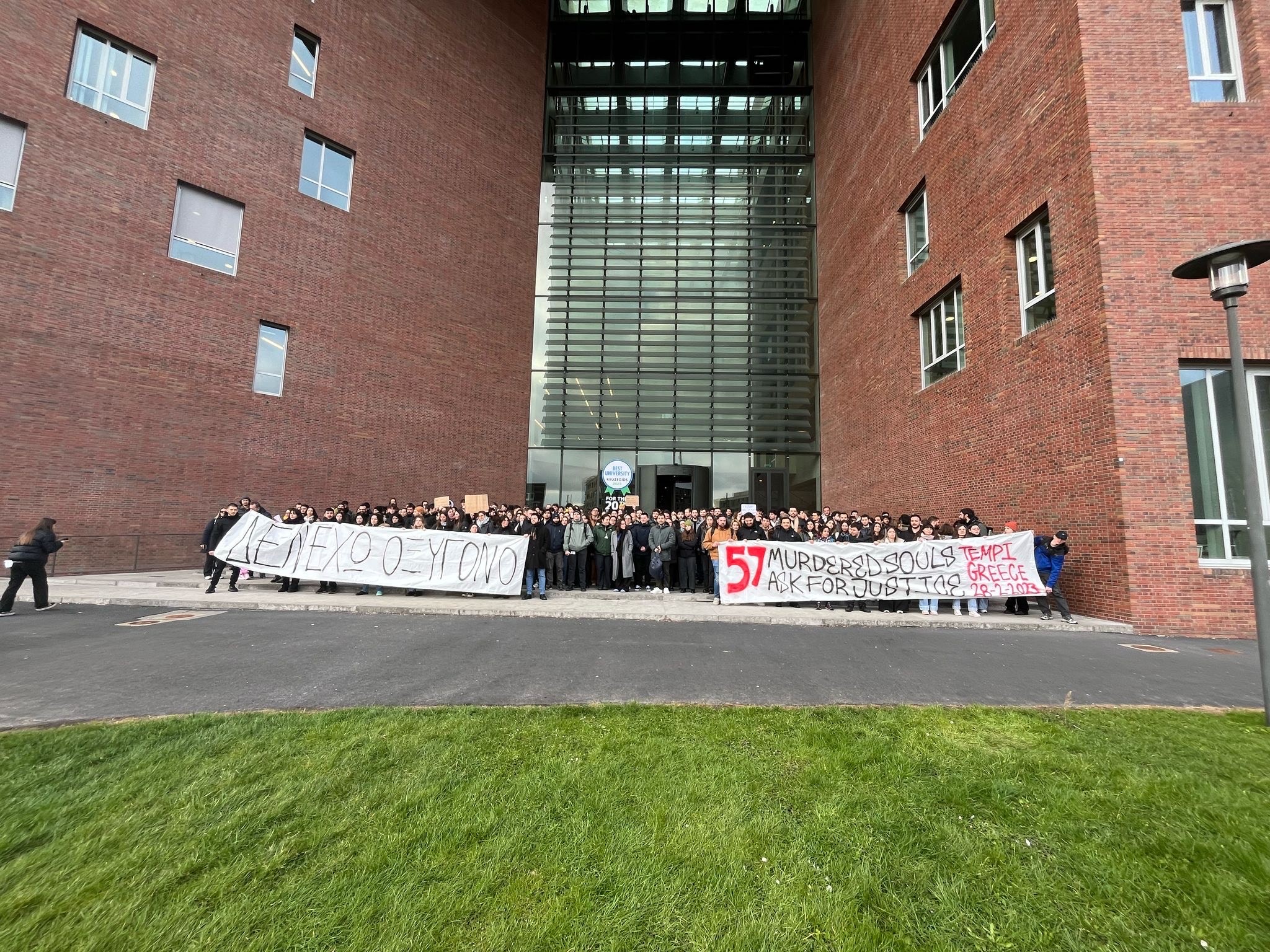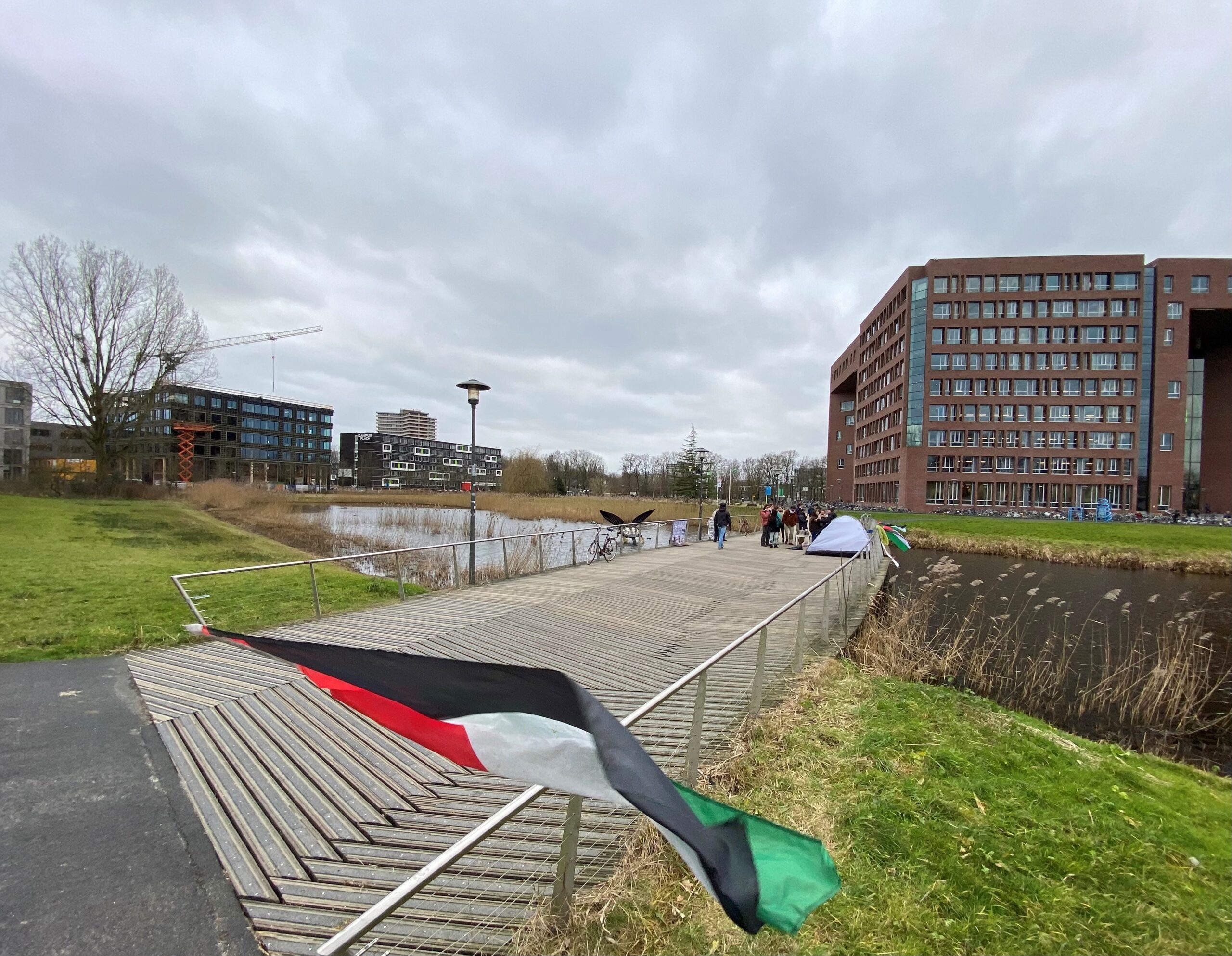For weeks, the bridge between Forum and Orion has been occupied by activists in tents who demand that WUR’s Executive Board cut ties with Israeli universities. What do WUR people think of the protests, the demands and the stance of the Executive Board? Resource surveyed the opinions.
Leon de Jonge, animal nutrition researcher and chair of the works council in the Animal Sciences Group
‘I’ve occupied buildings before in the 1980s when I was a student at Utrecht University. I think it’s an acceptable form of protest. At the time it was about teaching reforms, among other things. I do find it difficult that the current campus protests are about a long-standing political issue and not something within the power of the Executive Board. I don’t think it’s up to the Executive Board to formulate a vision on this topic. There are other institutions for that, like the UN. I think the Executive Board has acted appropriately.’
Caroline*, researcher at Wageningen Economic Research
‘From Atlas, I saw how activists prevented visitors to the Food & Agriculture conference from entering Omnia. My heart was pounding: it looked very volatile and unpleasant. Visitors came here specifically, and had to travel far in many cases, including from abroad. I think preventing people from entering the building is harmful, regardless of my views on the conflict itself. As far as I’m aware, the Executive Board is open to talking with the activists. What more can they do?’
Henk Hogeveen, professor of Business Economics
‘I think it’s fine that people are protesting. I feel the protests are relatively friendly and peaceful. I don’t see them as threatening. That was not the case at other universities. There will come a time when it might be good to stop because the point has been made. The Executive Board has also made its point. I don’t see much in the demand from the activists for a public discussion with the Board. The Executive Board gave a response with a perfectly good explanation. If they repeated it in public, it would just lead to a shouting match.’
Paul Smeets, Human Nutrition & Health researcher and member of the Central Works Council
‘I’m glad our activists are reasonably peaceful. Other than that I don’t really approve of the protests. I think the activists are better off campaigning in The Hague. Realistically, what are they hoping to achieve? The real influence would be via The Hague. I think the focus on Gaza is selective; there are so many abuses in the world. The simplistic slogans and banners also bother me. Plus I think it’s frustrating that a small group of activists are taking so much of the Executive Board’s time. It’s at the expense of their many other responsibilities.’
Eveline*, PhD candidate in Biology
‘I’ve heard more about protests at other universities through the news than about what’s going on here. Violence and vandalism detract from the message, so it’s great that they are staying clear of that in Wageningen. I’m not sure what the university’s role in this should be. An Israeli is involved in one of my research projects and I can’t just remove his name as co-author. Guidelines or tips for researchers on how to deal with these kinds of issues, including when it comes to cooperation with other countries that violate human rights, would be really helpful.’
Merel*, Master’s student in Nutrition and Health and Resilient Farming.
‘I’m mainly in Helix, so I don’t see much of the protests. But I think that the tents are a good form of protest. You are confronted with the war, but it’s not disruptive. It starts conversations with other students. That doesn’t happen if you share something about the conflict on your Instagram story. It’s better to exchange information with each other offline, like the activists are doing. I do expect more public explanations from the Executive Board. Isn’t that also part of your job as a board member?’
Wouter*, PhD candidate
‘I think the protests are great. I joined in a march across the campus once. I think the protests raise awareness in a good way; something needs to happen. At the same time, the activists are mindful of other users of the campus and they don’t cause too much inconvenience. I heard that the Board sent too many police officers to the protest at Atlas, but I didn’t see it myself. I mainly think it’s a pity the Board doesn’t want to have a public discussion.’
Lorenzo*, Master’s student in Physics from Rome
‘At my university in Rome, Sapienza, the protests are huge. Students cannot attend some of their classes because some protests are blocking buildings. Some protesters are on a hunger strike. The rector of Sapienza did not even react to the protests. I see that here in Wageningen, both the protesters and the Board do it in a more diplomatic way, and the protests are better organized. I think it is good that the protesters do their loud actions in the lunch breaks and they don’t block buildings, so they keep the support of other students.’
*Fictitious name. The full real name is known to the editors.

 Illustration Valerie Geelen
Illustration Valerie Geelen 


Two days ago the Board was presented with an open letter signed by over 400 members of staff calling on the Board to take its responsibilities towards human rights and international law seriously. I doubt a petition with that many staff signatures has been presented to the Board before. Incredible that the Resource does not report on this.